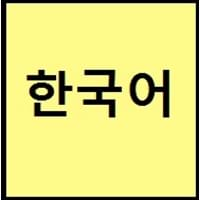Countries
China, Jilin Province, North Korea, South Korea, Yanbian
African Union, Democratic Republic of the Congo, East African Community, Kenya
National Language
North Korea, South Korea
Burundi, Kenya, Madagascar, Malawi, Mozambique, South Sudan, Tanzania
Second Language
Not spoken in any of the countries
Not spoken in any of the countries
Speaking Continents
Asia
Africa
Minority Language
Japan, People's Republic of China, Russia, United States of America
Not spoken in any of the countries
Regulated By
The National Institute of the Korean Language
Chama cha Kiswahili cha Taifa (Kenya)
Interesting Facts
- Korean has borrowed words from English and Chinese.
- Korean has two counting systems. First, is based on Chinese characters and numbers are similar to Chinese numbers, and second counting system is from words unique to Korea.
- Swahili language has borrowed many words from Arabic language.
- The oldest written scripts in swahili language were found in 18th century.
Similar To
Chinese and Japanese languages
Burundi, Rwanda, Malawi Languages
Derived From
Not Available
Arabic Language
Alphabets in
Korean-Alphabets.jpg#200
Swahili-Alphabets.jpg#200
Writing Direction
Left-To-Right, Horizontal, Top-To-Bottom
Not Available
Hello
안녕하세요. (annyeonghaseyo.)
Habari
Thank You
감사합니다 (gamsahabnida)
Asante
How Are You?
어떻게 지내세요? (eotteohge jinaeseyo?)
Habari gani?
Good Night
안녕히 주무세요 (annyeonghi jumuseyo)
Usiku mwema
Good Evening
안녕하세요 (annyeonghaseyo.)
Habari za jioni
Good Afternoon
안녕하십니까 (annyeong hashimnikka)
nzuri Alasiri
Good Morning
안녕히 주무셨어요 (An-yŏng-hi ju-mu-shŏ-ssŏ-yo)
Habari za asubuhi
Please
하십시오 (hasibsio)
tafadhali
Sorry
죄송합니다 (joesonghabnida)
pole
I Love You
당신을 사랑합니다 (dangsin-eul salanghabnida)
nakupenda
Excuse Me
실례합니다 (sillyehabnida)
Samahani
Where They Speak
South Korea
Zanzibar island
How Many People Speak
Not Available
Dialect 2
Gyeongsang
Kimrima
Where They Speak
South Korea
Dar es Salaam
How Many People Speak
Not Available
Dialect 3
Hamgyŏng
Kimgao
Where They Speak
China, North Korea
Kilwa
Speaking Population
Not Available
Native Name
한국어 (조선말)
Not Available
Alternative Names
Hanguk Mal, Hanguk Uh
Kisuaheli, Kiswahili
French Name
coréen
swahili
German Name
Koreanisch
Swahili
Pronunciation
Not Available
Not Available
Ethnicity
Koreans
Swahili people or Waswahili
Origin
Before 1st century
6th century
Language Family
Koreanic Family
Niger-Congo Family
Subgroup
Not Available
Benue-Congo
Branch
Not Available
Bantu
Early Forms
Old Korean, Middle Korean and Korean
No early forms
Standard Forms
Pluricentric Standard Korean, South Korean standard and North Korean standard
Swahili
Language Position
Not Available
Signed Forms
Korean Sign Language
Not Available
Scope
Individual
Individual, Macrolanguage
ISO 639 6
Not Available
Not Available
Glottocode
kore1280
swah1254
Linguasphere
45-AAA
99-AUS-m
Language Type
Living
Living
Language Linguistic Typology
Subject-Object-Verb
Not Available
Language Morphological Typology
Agglutinative
Not Available
All Korean and Swahili Dialects
Most languages have dialects where each dialect differ from other dialect with respect to grammar and vocabulary. Here you will get to know all Korean and Swahili dialects. Various dialects of Korean and Swahili language differ in their pronunciations and words. Dialects of Korean are spoken in different Korean Speaking Countries whereas Swahili Dialects are spoken in different Swahili speaking countries. Also the number of people speaking Korean vs Swahili Dialects varies from few thousands to many millions. Some of the Korean dialects include: Jeju, Gyeongsang. Swahili dialects include: Kiunguja , Kimrima. Also learn about dialects in South American Languages and North American Languages.
Korean and Swahili Speaking population
Korean and Swahili speaking population is one of the factors based on which Korean and Swahili languages can be compared. The total count of Korean and Swahili Speaking population in percentage is also given. The percentage of people speaking Korean language is 1.14 % whereas the percentage of people speaking Swahili language is Not Available. When we compare the speaking population of any two languages we get to know which of two languages is more popular. Find more details about how many people speak Korean and Swahili on Korean vs Swahili where you will get native speakers, speaking population in percentage and native names.
Korean and Swahili Language Codes
Korean and Swahili language codes are used in those applications where using language names are tedious. Korean and Swahili Language Codes include all the international language codes, glottocodes and linguasphere.





